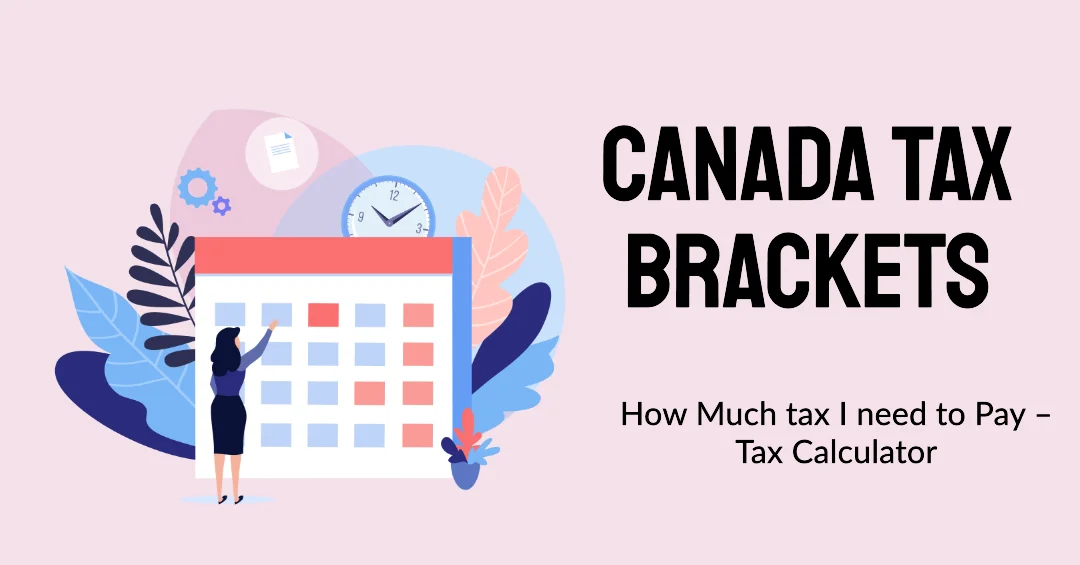For Advertising Contact Us
Canada Tax Brackets – How Much tax I need to Pay – Tax Calculator

Most Canadians strive to understand the intricate details of the tax system to ensure they are meeting their obligations and maximizing their returns. Knowing the tax brackets and how much tax you need to pay is crucial for effective financial planning. In this guide, we will breakdown the Canadian tax brackets and provide you with the tools to calculate how much tax you need to pay using a tax calculator. Stay informed and empowered when it comes to your taxes.
Understanding Canada Tax Brackets
The Types of Tax Brackets in Canada
While understanding Canada tax brackets, it is crucial to know the types of tax brackets you fall into. Tax brackets are categorized based on income levels. Different tax rates apply to different income ranges. Any income earned above a specific threshold will be taxed at a higher rate. Importantly, the Canadian tax system is progressive, meaning the more you earn, the higher percentage of tax you will pay.
| Income Range | Tax Rate |
|---|---|
| $0 – $48,535 | 15% |
| $48,536 – $97,069 | 20.5% |
| $97,070 – $150,473 | 26% |
| $150,474 – $214,368 | 29% |
| Above $214,369 | 33% |
How Your Income Determines Your Tax Bracket
Even a slight increase in your income can push you into a higher tax bracket. To ensure you pay the correct amount of tax, it is necessary to understand how your income determines your tax bracket. With Canada’s progressive tax system, the more you earn, the more tax you will pay on the additional income. It’s crucial to keep track of your income levels throughout the year to avoid any surprises come tax season.
Calculating Your Taxes
Step-by-Step Guide to Using a Tax Calculator
Now, let’s investigate how to use a tax calculator to simplify the process of calculating your taxes. Follow the step-by-step guide below:
| Step 1: Enter your total income | Step 2: Input any deductions or credits you may have |
| Step 3: Select your filing status | Step 4: Review the calculated tax amount |
Factors That Affect Your Tax Calculation
Using a tax calculator can help you understand how different factors impact your tax liability. Factors that can affect your tax calculation include:
- Income Level: Higher income generally leads to higher taxes
- Deductions and Credits: Utilizing deductions and credits can lower your taxable income
- Filing Status: Your filing status can determine your tax brackets and rates
On top of these, additional factors such as investments, self-employment income, and homeownership can also play a role in your tax calculation. Knowing how these factors interact with each other can help you optimize your tax planning strategies.
Tips for Tax Planning
Keep tax planning in mind throughout the year to maximize your savings and minimize your tax liabilities. Consider consulting with a tax professional to strategize the best approach for your specific financial situation. Utilize tax-sheltered accounts like RRSPs and TFSAs to save for retirement while reducing your taxable income. Keep receipts and documentation organized for potential deductions and credits to ensure you are claiming all eligible expenses.
- Contribute to tax-sheltered accounts
- Stay organized with receipts and documentation
- Utilize deductions and credits
- Invest in RRSPs and TFSAs
Though tax planning requires effort and diligence, the potential savings make it a worthwhile investment of your time and resources.
Pros and Cons of Different Tax-Saving Strategies
| Pros | Cons |
|---|---|
| Maximize tax savings | Could be complex |
| Reduce taxable income | Requires ongoing monitoring and adjustments |
| Gain access to tax credits | May limit liquidity |
How to Maximize Your Tax Refund
For individuals looking to maximize their tax refund, be sure to take advantage of all available deductions and credits. Consider contributing to an RRSP up to the limit to reduce your taxable income. Utilize tax software or consult with a professional to ensure you are claiming all eligible expenses. Review your filing status and explore potential credits like the Canada Workers Benefit to boost your refund.
Plus, be mindful of important deadlines and keep track of changes in tax laws that could impact your refund amount. By staying informed and proactive, you can maximize your tax refund and keep more of your hard-earned money in your pocket.
Final Words
Hence, understanding Canada’s tax brackets and how much tax you need to pay is crucial for effectively managing your finances. By using a tax calculator, you can accurately estimate your tax liability and plan accordingly. Make sure to stay informed about any updates or changes in tax laws to ensure you are fulfilling your obligations and maximizing your savings. Note, knowledge is power when it comes to taxes.



